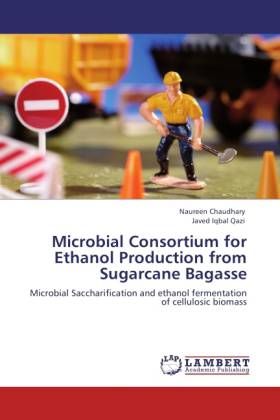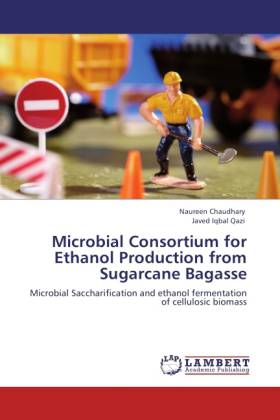
- Afhalen na 1 uur in een winkel met voorraad
- Gratis thuislevering in België vanaf € 30
- Ruim aanbod met 7 miljoen producten
- Afhalen na 1 uur in een winkel met voorraad
- Gratis thuislevering in België vanaf € 30
- Ruim aanbod met 7 miljoen producten
Zoeken
Microbial Consortium for Ethanol Production from Sugarcane Bagasse
Microbial Saccharification and ethanol fermentation of cellulosic biomass
Naureen Chaudhary, Javed Iqbal Qazi
Paperback | Engels
€ 67,45
+ 134 punten
Omschrijving
Bioethanol has been conceived as a sustainable clean future energy source. To replace the fossils' fuels, it has to be produced at large and sustainable scale, which is only possible if the cellulosic biomass is mobilized for this purpose. This book describes workable strategies of isolating and cultivating microorganisms capable of saccharifying and fermenting the abundantly available renewable resource into ethanol exemplified in this investigation by Sugarcane Bagasse. Both bacteria and yeasts capable of simultaneous saccharification and fermentation at elevated temperatures appear to be good candidates for obtaining bioethanol from cellulosic biomass. Ethanol tolerance and thermoduric nature of the microbes reported here are imperative features required for exploiting them for the provision of ethanol in a single bioreactor. The protocols described can be worked out for other agro/food industrial wastes rich in soluble and hydrolyzable carbohydrates.
Specificaties
Betrokkenen
- Auteur(s):
- Uitgeverij:
Inhoud
- Aantal bladzijden:
- 176
- Taal:
- Engels
Eigenschappen
- Productcode (EAN):
- 9783846510377
- Verschijningsdatum:
- 9/10/2011
- Uitvoering:
- Paperback
- Formaat:
- Trade paperback (VS)
- Afmetingen:
- 152 mm x 229 mm
- Gewicht:
- 267 g

Alleen bij Standaard Boekhandel
+ 134 punten op je klantenkaart van Standaard Boekhandel
Beoordelingen
We publiceren alleen reviews die voldoen aan de voorwaarden voor reviews. Bekijk onze voorwaarden voor reviews.











